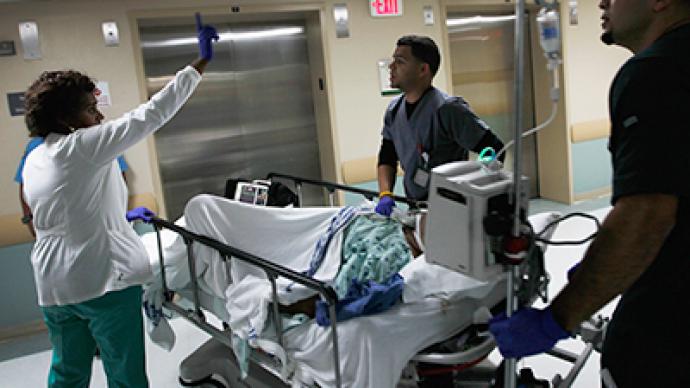Eleven dead, thousands in danger amid spreading meningitis outbreak

A deadly meningitis outbreak that has left eleven dead, 119 infected and up to 13,000 at risk is taking its toll across the US. With symptoms showing up weeks after exposure, many more patients are expected to get sick.
The meningitis-tainted steroid shots were dispersed to health care centers across 23 US states and administered to about 13,000 patients who requested treatment for back pain, according to the Center for Disease Control and Prevention.But the shots have cost many their life.George Cary, 65, and his wife Lilian Cary, 67, both received the contaminated treatment to relieve their pain. While the man has not acquired any symptoms, he lost his wife to the deadly disease on Sept. 30.After responding to medication, her spirits were lifted and she spent her time Skyping with her grandsons in the hospital. But shortly thereafter, she suffered a stroke and was removed from life support.“They advised me to watch for symptoms,” Cary told the Associated Press while at a funeral home. “At this point, there’s nothing abnormal, but they said the same thing when Lilian had hers. …Not only have I lost my wife, but I’m watching the clock to see if anything develops.”Cary is just one of thousands watching the clock, waiting and hoping not to acquire any signs of illness. The outbreak has been linked to the New England Compounding Center (NECC), Inc., which is one of thousands of pharmacies that repackages or recombines medications. The Food and Drug Administration has no power to regulate compounded medications made at pharmacies like the one that dispersed the meningitis-tainted steroid shots.Lawmakers claim the health crisis is demonstrating the need for stronger FDA regulations in the drug industry. Compounding pharmacies often produce cheaper medications“These compounding pharmacies are operating now on a scale where (regulation) should be a priority,” Senator Richard Blumenthal told Reuters.“If regulation doesn’t set a standard that seeks to prevent this, we can expect these outbreaks to keep happening,” said Dr. John Santa, director of the Health Ratings Center.The NECC had shipped 17,676 vials of the steroid methylprednisolone acetate – which contained the meningitis – to 76 healthcare facilities from July through September. Last week, it recalled all the vials and voluntarily shut down its services.The CDC is continuing to monitor the rapidly increasing number of infections, updating the case count on its website on a daily basis.Tennessee continues to remain the hardest-hit state, hosting 39 cases and six deaths.














